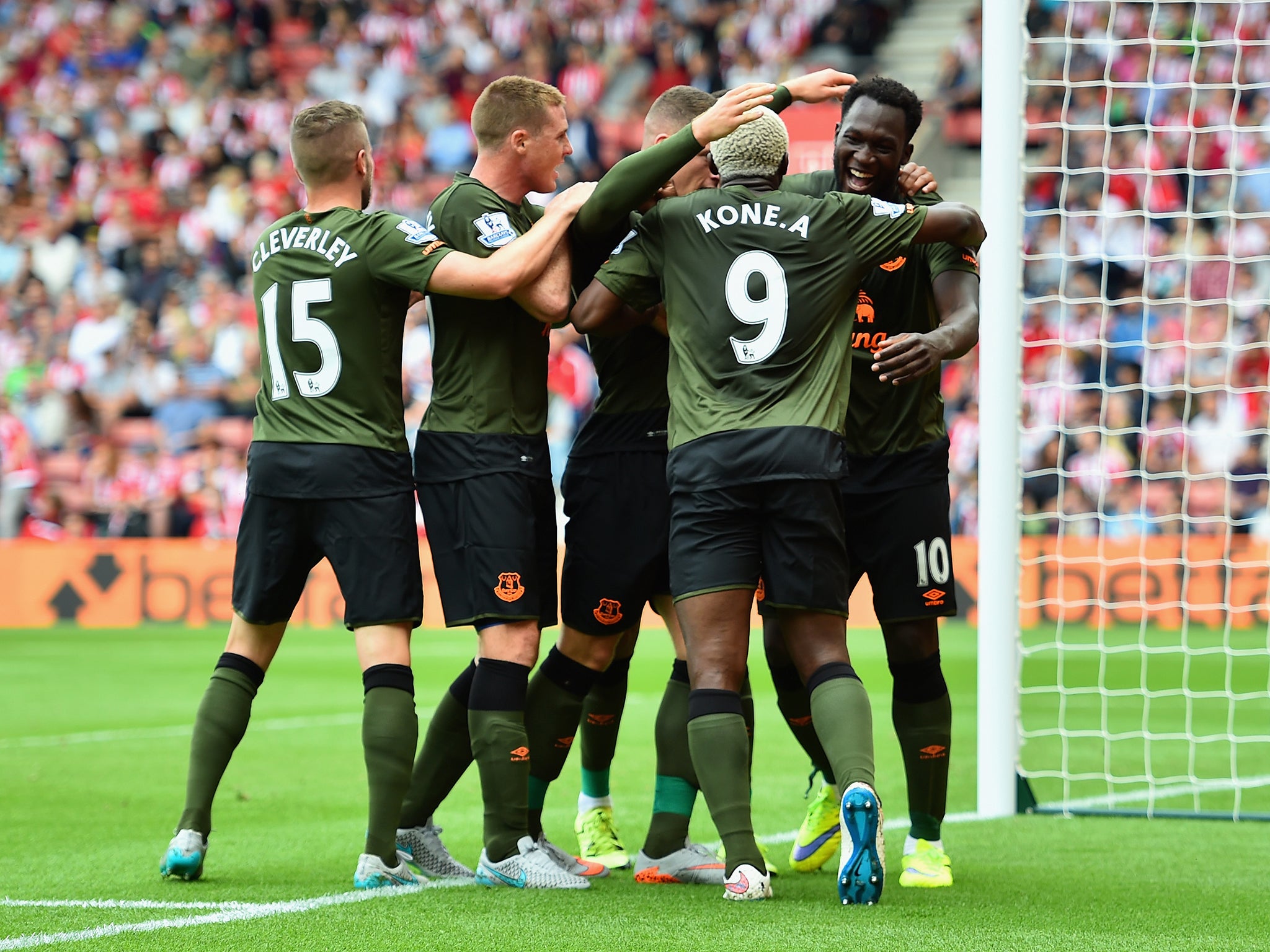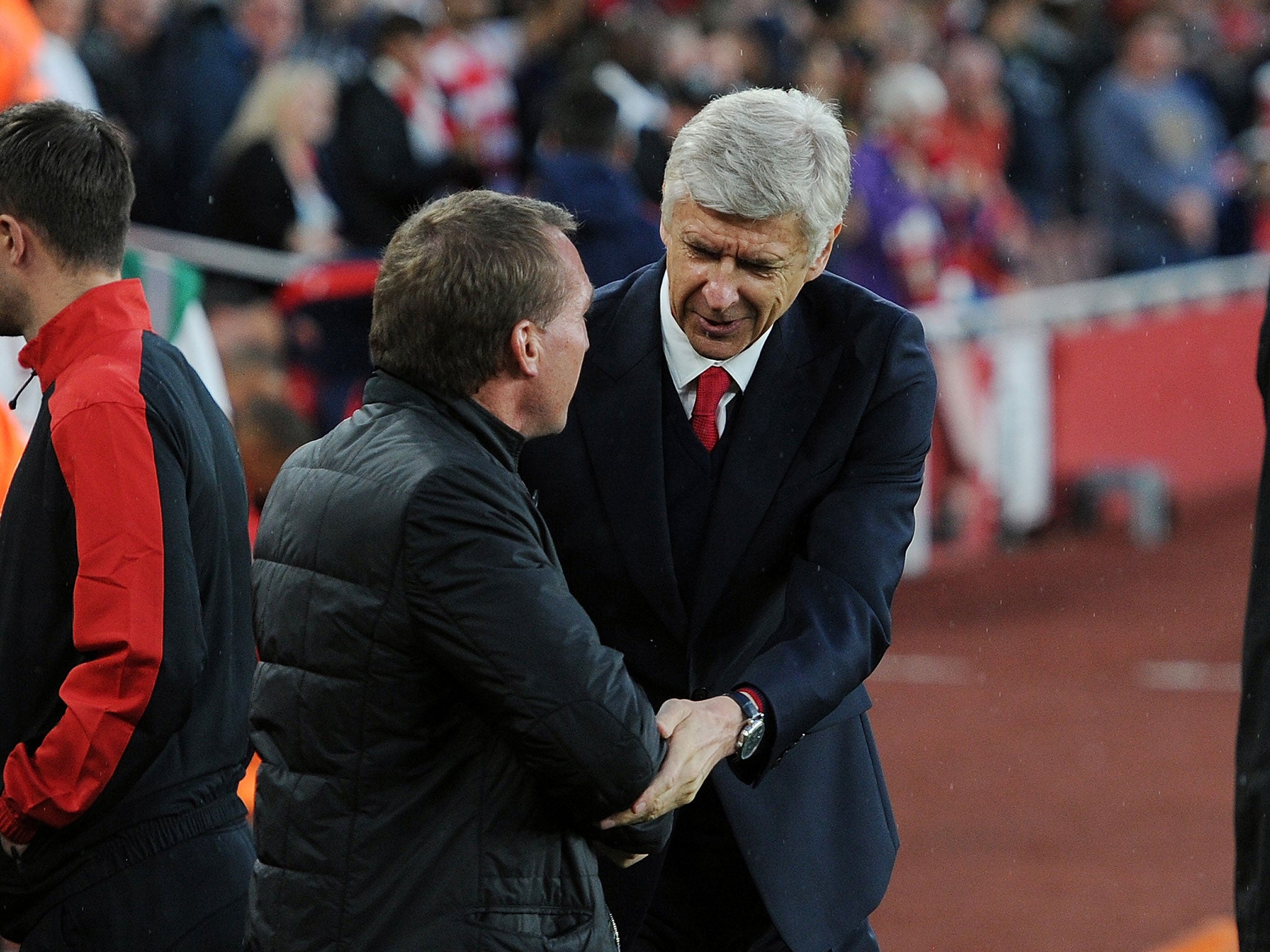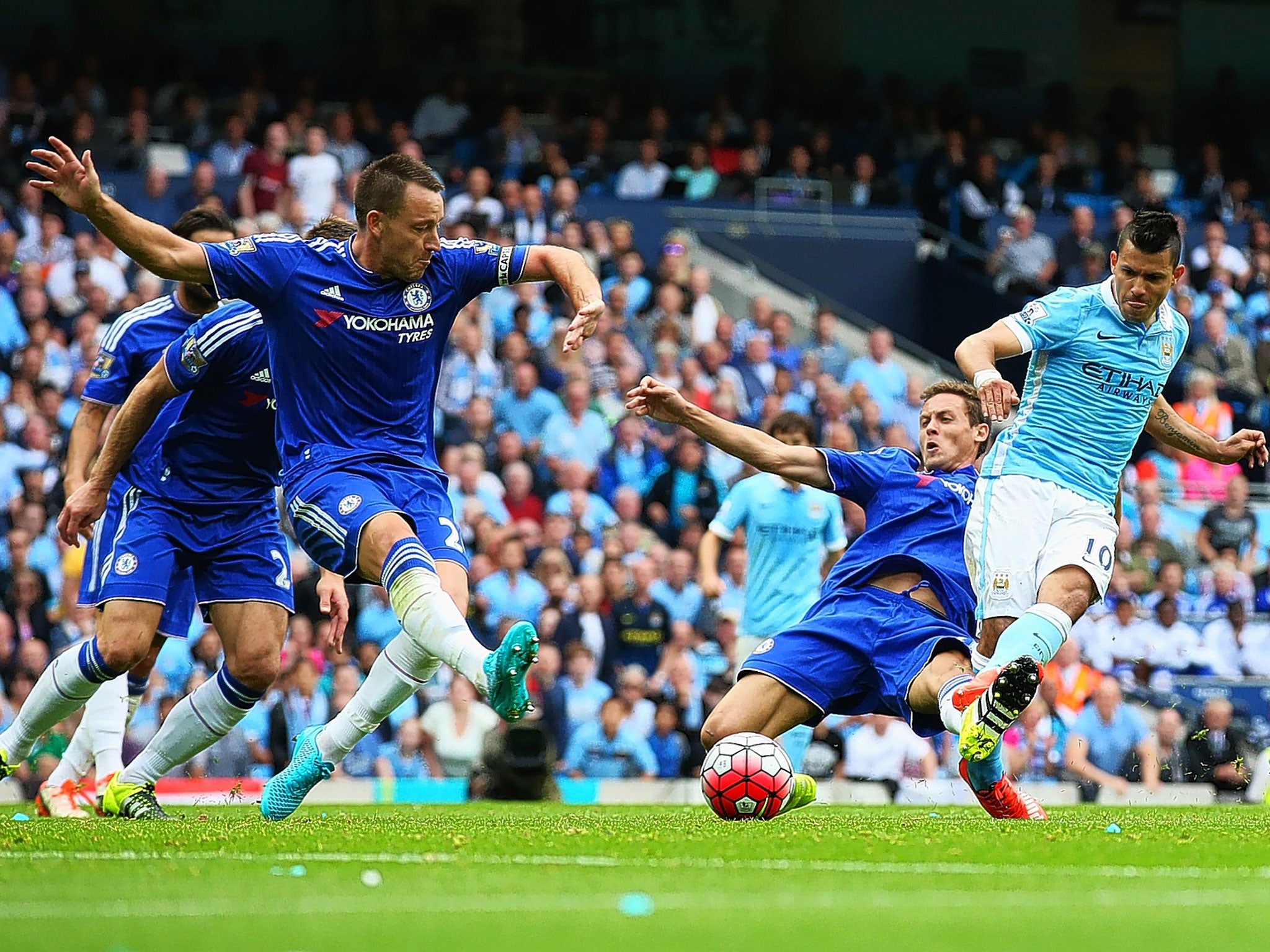The Premier League is about earning the right to play on the counter-attack - Danny Higginbotham
INSIDE FOOTBALL: The advantage of playing at home appears to be over and this is why, explains Danny Higginbotham

Your support helps us to tell the story
From reproductive rights to climate change to Big Tech, The Independent is on the ground when the story is developing. Whether it's investigating the financials of Elon Musk's pro-Trump PAC or producing our latest documentary, 'The A Word', which shines a light on the American women fighting for reproductive rights, we know how important it is to parse out the facts from the messaging.
At such a critical moment in US history, we need reporters on the ground. Your donation allows us to keep sending journalists to speak to both sides of the story.
The Independent is trusted by Americans across the entire political spectrum. And unlike many other quality news outlets, we choose not to lock Americans out of our reporting and analysis with paywalls. We believe quality journalism should be available to everyone, paid for by those who can afford it.
Your support makes all the difference.We have seen something over the start of the Premier League season that we have almost never seen before in English football: the reversal of home advantage.
There have been 30 Premier League matches played so far, and just six of them have been won by the home team, an unusually low number. In the modern game, everyone wants to play on the counter-attack. Away teams set up like that, while home teams come out fast, trying to score early to earn the right to play on the break.
The first 30 minutes is becoming the decisive period in Premier League matches. If the away team survives that, and frustrates the home team, then they become the favourite. They can sit deep, nullifying the home side’s pace, playing on their frustration, and hoping to pick them off when they over-commit.
Just look at the five teams so far this season who have taken at least as many points from one away game than they did in two home games. And what links them all? Pace on the break.
Look at Arsenal, who won 2-1 at Crystal Palace, thanks to Alexis Sanchez. But they have taken just one point from their home games against West Ham United and Liverpool, yet to score a single goal at the Emirates against opposition who sit deep and dig in.

Look at West Ham themselves, who impressively won 2-0 at Arsenal, cutting through them with the pace of Dimitri Payet and Diafra Sakho. After that, they slipped to disappointing home defeats against Leicester City and AFC Bournemouth.
Look at Everton, who have hosted Watford and Manchester City at Goodison Park, where they can get frustrated, where they have taken just one point. But when they went to Southampton, thanks to Romelu Lukaku, Ross Barkley and Arouna Kone’s threat on the counter-attack, they won 3-0.
Look at Norwich City, who have had two winnable home games, against Crystal Palace and Stoke City, from which they have taken one point. Their one away game, though, at Sunderland, they won 3-1, with Cameron Jerome and Nathan Redmond providing a threat that can be nullified at home.
Look at Crystal Palace, who have played two home games – against Arsenal and Aston Villa – as well as one away, at Norwich City. But they have three points at Selhurst Park and three on the road, thanks to the counter-attacking prowess of Wilfried Zaha, Yannick Bolasie and Jason Puncheon.
Premier League football this season is all about pace on the counter-attack. Everyone wants to sit deep and play on the break, so they can nullify the opposition’s counter-attackers, frustrate them, and then pick them off.
This, in turn, has had a fascinating effect on how home teams set up, given the onus is on them to win the game. They know that the best way to win home games, and to avoid the counter-attacking threat, is to become the counter-attacker. This means going hell for leather in the first 30 minutes, and taking the lead, so they can sit back while the away team is forced to come out and play.
Again, just look at the evidence. In four of the six home wins in the league so far, the home team has gone ahead within the first 26 minutes: when Manchester United beat Tottenham Hotspur, when Liverpool beat Bournemouth, when Leicester City beat Sunderland and when Swansea City beat Newcastle.
The only exceptions were City beating Chelsea – when they scored after 31 minutes – and Palace beating Villa – after 71 minutes.
If the home team does not score early on, then the away team becomes the favourite, as there is no supporter pressure on them and they can frustrate the hosts until they can set traps and pick them off in the second half. But if they can score, they can keep the ball and try to draw the visitors out.
Home teams know this now, which is why Manchester City came out so fast against Chelsea, almost scoring within 30 seconds. Manchester United tried to do the same to Newcastle United, but they couldn’t score, and drew 0-0.

This is going to become normal in the Premier League, and results will almost become clear within 30 minutes. This is the era of the counter-attack, and everyone wants the right to play on the break.
TRANSFER REQUESTS
I know what it is like for players like John Stones and Saido Berahino who have submitted transfer requests – both rejected – this week in an attempt to get a move. Sometimes it is the only way to make a deal happen.
When I was at Stoke City in 2007, Sunderland had just been promoted to the Premier League and I knew that they wanted to sign me. I wanted the chance to play in the top flight, and the clubs were negotiating, but Stoke City said that I could only leave if I put in a transfer request, because they did not want to look bad.

So I wrote on two pieces of paper, which I put in two envelopes, “I would like to leave, as I can no longer give my best to the football club”. I gave one to Tony Pulis and one to the chairman. Within 24 hours I was at Sunderland. One year later, though, I was back at Stoke City, showing that people in football can have short memories.
I would be surprised, then, if Stones put in that transfer request entirely off his own back. He will certainly have been advised to do it by his agent, knowing that negotiations between Chelsea and Everton were at an impasse, and thinking this may be the best way to get it going.
If the player has reassurances – and the interested club will make up any lost money – it is a very natural move. Because the players all know that when their time is up, their clubs will not show much loyalty in return.
Join our commenting forum
Join thought-provoking conversations, follow other Independent readers and see their replies
Comments